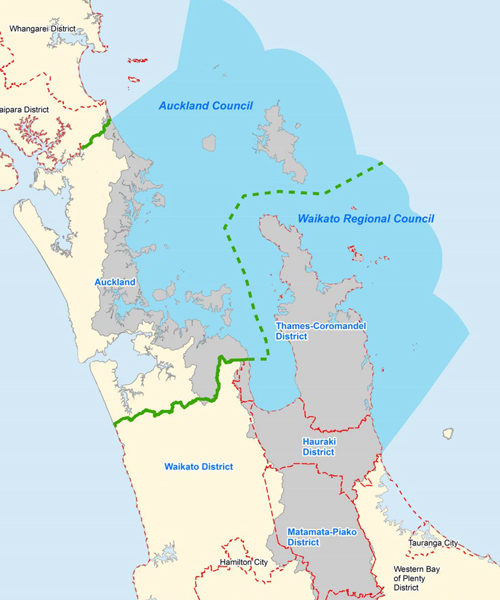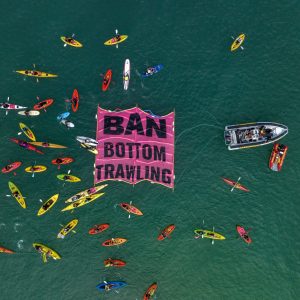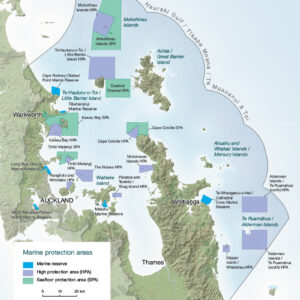After seven years of meetings, planning and reports, officials have been told to start actioning improvements to the Hauraki Gulf Marine Park. The Park extends from Pakiri in the north to Waihi in the Bay of Plenty. These waters have been degraded by decades of use, abuse and management paralysis.

In a joint submission to the Ministry for Primary Industries and Department of Conservation recreational interest groups advocated that work commence on agreed strategies while further action awaits legislative changes.
The submission was sent in early June by the New Zealand Sport Fishing Council, LegaSea, the New Zealand Angling & Casting Association and New Zealand Underwater Association.
In 2016 officials released the final Sea Change – Tai Timu Tai Pari Marine Spatial Plan. Within that plan there were a number of elements that achieved consensus. On the issues where there was no agreement we took the pragmatic approach, accepting there was more work to do.
A major concern now is the Government will cherry pick and implement all of the marine protected areas to appease public dissatisfaction with current dysfunctional fisheries management. The Government’s priority ought to be addressing two fundamental needs: independent governance and an effective management regime.
However, after 20 years of advocacy we already know the pathway to abundance is blocked by the Quota Management System and the rights held by those who have commercial fishing interests in the Gulf. This is why we are still witnessing bottom trawling, purse seining and dredging within Gulf waters even though the available evidence supports excluding these methods from sensitive ecosystems.
If positive change is to be achieved we must all take responsibility for addressing fish depletion and biodiversity loss in the Gulf. The NZ Sport Fishing Council and LegaSea have developed the Rescue Fish policy reforms to achieve more abundant fisheries and a healthier marine environment for all of New Zealand.
Rescue Fish reforms will give Māori a meaningful governance role, ensuring our fish stocks are always managed at abundant levels. It will enable a thriving commercial sector based in the regions not just the major ports. Rescue Fish has the potential to improve productivity in the Hauraki Gulf by banning high impact bulk harvesting fishing methods in favour of the environment and the need to protect our precious sea creatures.
Now it’s up to the politicians to stand up for change. You can make that happen by signing the Rescue Fish petition.
More information
Hauraki Gulf – Sea Change submission
Sign the Rescue Fish petition here.
Rescue Fish – Policy summary.
Rescue Fish – Full policy.





